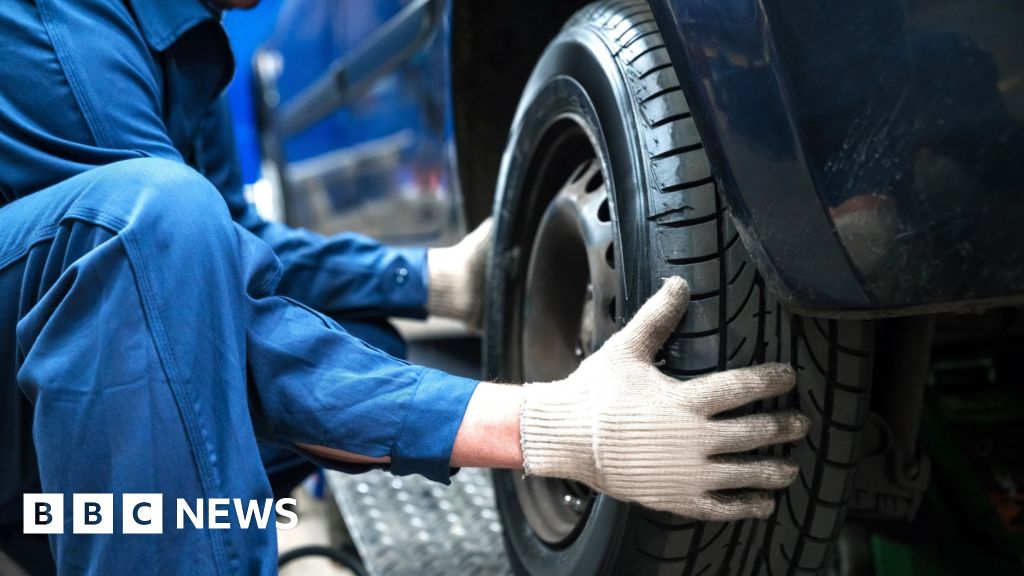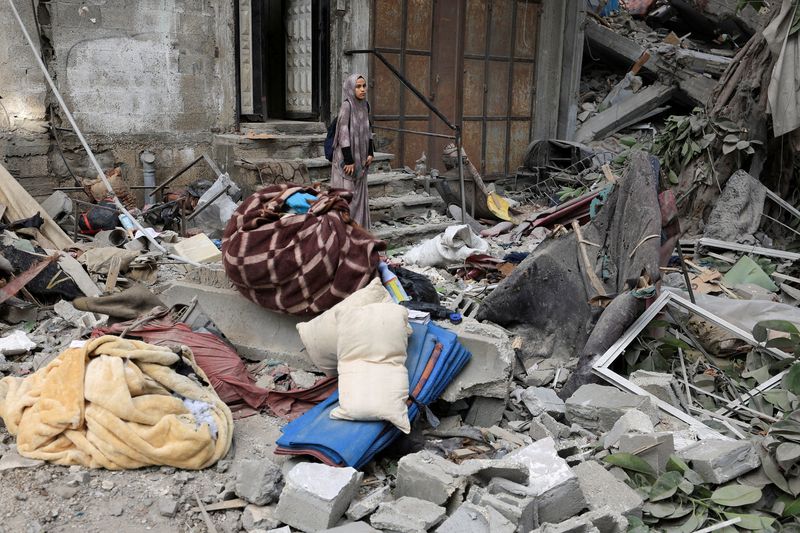BBC File on 4 Investigates
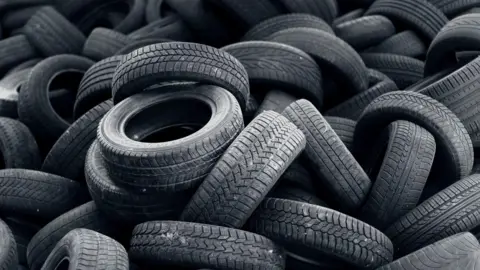 Getty Images
Getty ImagesThe Environment Agency said it is introducing enhanced checks on the export of tyres from the UK after the BBC revealed millions were being sent to furnaces instead of being recycled in India.
A report by the EA acknowledged it is “highly likely” that a proportion of exported tyres were diverted to illegal furnaces.
These makeshift industrial plants, intended to extract steel, small amounts of oil and other materials, can cause serious health problems and environmental damage.
Campaigners and the tyre recycling industry body welcomed the announcement but said the proposal will not close all loopholes exploited by criminals.
The UK generates about 50 million waste tyres (nearly 700,000 tonnes) every year. According to official figures, about half of these are exported to India, supposedly to be recycled.
But in March of this year BBC File on 4 Investigates and Source Material, a non-profit journalism group, revealed that some 70% of tyres exported to India from the UK and the rest of the world are being sent to makeshift industrial plants, where they are “cooked” in order to extract carbon black – a powder or pellet that can be used in various industries – as well as the steel and oil.
This process is known as pyrolysis and takes place in facilities akin to homemade pressure cookers, often in rural backwaters. They can produce gases and chemicals which can be toxic, harmful to public health and potentially dangerous.
In January, two women and two children were killed in an explosion at a plant in western state of Maharashtra, where European-sourced tyres were being processed.
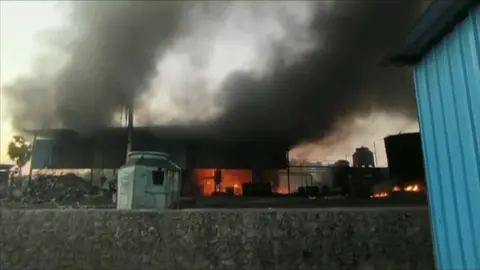
A BBC team visited the site and saw soot, dying vegetation and polluted waterways in the surrounding area. Villagers complained of persistent coughs and eye problems.
After the BBC revealed that millions of tyres were being “cooked” in these plants, the Environment Agency launched a review, which concluded last week.
It acknowledged for the first time that it’s “highly likely” that a proportion of tyres from the UK are diverted to illegal pyrolysis as opposed to being recycled.
“We have not been able to verify that exported waste pneumatic tyres are arriving at their intended destination sites in India,” the EA said, adding that there was a “lack of sufficiently credible information” that they were being processed properly.
The EA said it has an obligation to prohibit exports of waste if there is a risk that the waste will not be managed in an environmentally responsible way, and it would introduce enhanced checks on tyre exports from 1 October.
Under the proposals those exporting tyres will have to satisfy the EA that waste is being recovered in environmentally sound manner.
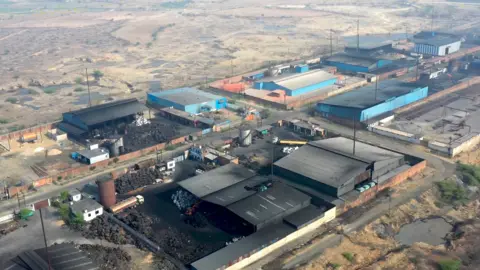
But the pressure group Fighting Dirty, which threatened the EA with legal proceedings over what it called a “lack of action” over tyre exports, said there is “too little detail” to satisfy them that the EA’s proposals will “effectively close the loopholes exploited by criminals.
The group’s founder Georgia Elliott-Smith said the plan “sounds promising” but just seems to be self-certification paperwork with the threat of inspections – “not much different from today’s flawed protocol”.
“Only time will tell if this results in meaningful change, or just more red tape and delay,” she said.
The Tyre Recycling Association (TRA), which has long campaigned for a ban on exports of whole tyres, an approach adopted by the Australian government, said it was “very disappointed” the EA dismissed that idea.
It believes tyres should only be exported after shredding, which it said would make it more expensive and difficult to sell them illicitly in India.
“Yet again, the EA is failing us as well as themselves,” the TRA said.
The EA said the new regulations are a “pragmatic solution” that will continue allow waste tyres to be exported to India, where exporters can show they are being sent somewhere with broadly equivalent standards to the UK.

Get our flagship newsletter with all the headlines you need to start the day. Sign up here.
